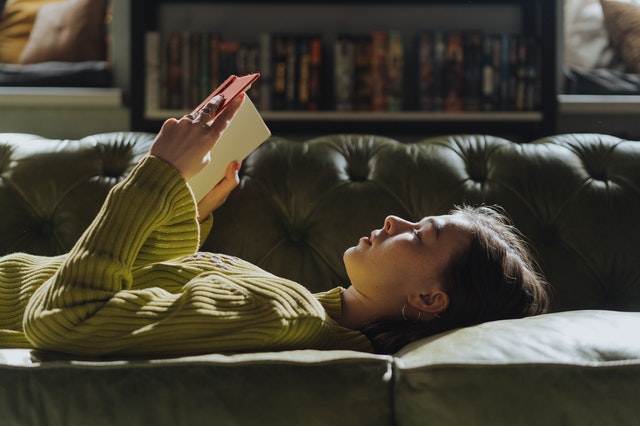
I suffer from a pretty profound version of ADHD.
Growing up, I would sit in my bedroom on a Sunday night, trying with every fiber of my being to read the assignment for my English class, and it was always terrible and frustrating. I would read the first two or three sentences, and my mind would immediately begin to obsess about a girl I liked, a fight I had with my dad, or the new hardcore album I wanted to buy—and before I knew it, I’d be on page 13 without having the slightest idea what was happening in the book.
I’d go back to page one again and after two or three more attempts, I’d give up.
It was only after I discovered books on cassette at the library that everything began to fall into place for me. I took out Madame Bovary and I was enraptured for the entire eight hours. I absorbed every little detail, my mind creating colorful movies that corresponded to what I heard, and I fell deeply in love with literature.
Ironically, the thing that plagued me the worst as a child became my life-long love. I went on to major in English at college and even write my own book. I still mostly absorb audiobooks the best, but every so often I turn to the written word for comfort.
This year, I must’ve read over a hundred books, but the ones pertaining to mindfulness, meditation, and yoga have felt most pertinent. At one point, when I became depressed, my therapist recommended that I meditate at least once a day, and the more I learned about it, the easier it was to do.
So as 2021 comes to a close, I present you with what I consider the best books of this category that I’ve found:
A Life Worth Living: Mellara Gold’s new book on “mindfulness, yoga, and living in awareness” is my favorite because she employed a style that I used in my book, as well. By using vignettes of memoir, prescriptive information, and a bit of research, her book takes what could have been dry and didactic information and makes it a literal page-turner. Her childhood could very well have been a movie, and she takes you through her learning process in marriage, motherhood, and studying under Channa Dassanayaka, who also supplies the invocation at the book’s opening. This book is totally worth checking out.
How To Connect: This is the eighth book in a nine-book series by Thích Nhat Hạnh, the Vietnamese Buddhist poet and scholar, and although it is a quick and easy read, it is life-altering if taken in small doses. As the Zen master is quoted as saying, “We are here to awaken to the illusion of our separateness.” I’m sure you’ll agree, with things as they are right now, both in the world and in our country, there has never been a more appropriate time to do just that.
The Wisdom of No Escape: This book from Pema Chödrön was deeply healing for me. There is a definite balance to life, and when we stop trying to “escape” all the things we find unpleasant—and even downright miserable—we can begin to embrace the true spectrum of everything life has to offer. Chödrön opens the book with the explanation that even though it is instinctive to want to “avoid pain and just try to get comfortable,” we must learn that “we can endure a lot of pain and pleasure for the sake of finding out who we are…”
The Power of Letting Go: John Purkiss’s book on the way “to drop everything that’s holding you back,” is a true godsend because it employs practical advice on how to “let go” to gain more control of our lives. Sounds counter-intuitive, yes? Perhaps, but as a student of the Vedic tradition in India, Buddhism, Sufism, and Kabbalah, his knowledge is extensive and worthwhile. As he points out, “You don’t need to control everything that’s happening. You don’t need to push, struggle, fight, force things or try to manipulate people in order to make things the way you want them to be. It’s exhausting and unnecessary.” The book is divided into five parts that are easy to follow, yet powerful and life-changing.
No Mud, No Lotus: My last recommendation is another book by Thích Nhat Hạnh, and while it’s from quite a few years ago, I just recently discovered it and it still sits rather high in the Meditation and Philosophy charts, even after so much time. The master teaches us about the power of conscious breathing, the wisdom of not running away from pain, the process of learning how to handle strong emotions and—believe it or not—the art of suffering. All of this packed into an easy 128-page book. Some refer to No Mud, No Lotus as the best from the best. I can’t implore you enough to check it out.
My hope is that you find something from this list that speaks to you.
No comments:
Post a Comment